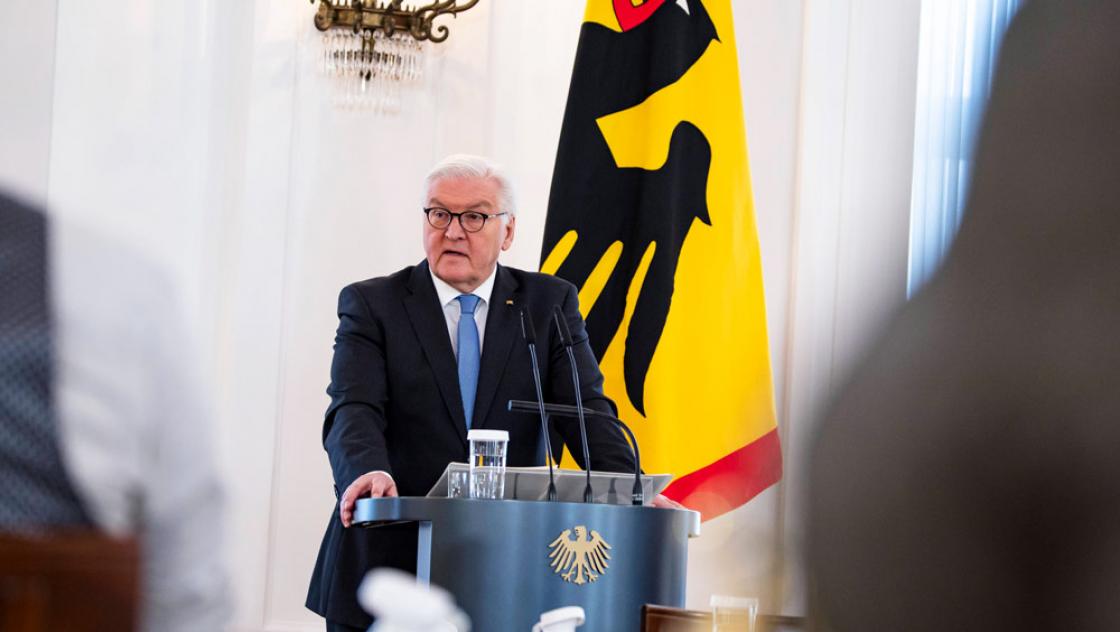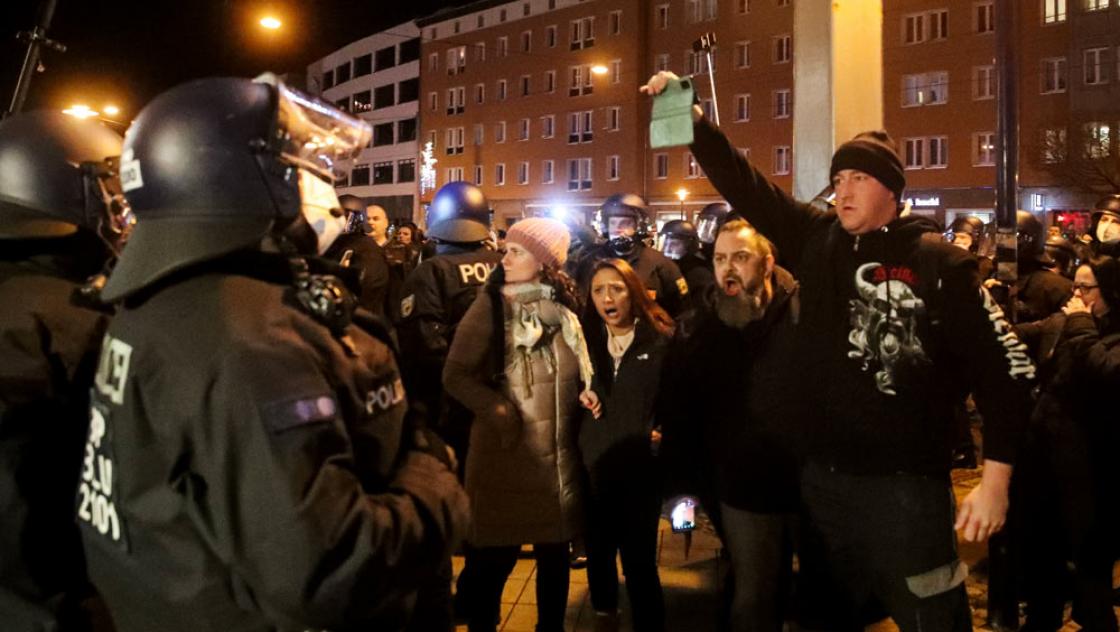Januar 29, 2022, 12:00 a.m.,
Dominik Gerst, Svenja Heuser, Maximilian Krug,
Uncategorized.
Harvey SACKS is considered one of the pioneers of ethnomethodological conversation analysis. Forty years after his death, a volume has been presented in which researchers from different generations illustrate many of his central concepts and approaches in the context of their own research. Thus, this anthology is not a typical textbook for the introduction to ethnomethodological conversation analysis, but offers an overview of SACKS' rich and lasting work in research practice. In 17 contributions, sociological, linguistic, and didactic approaches, among others, are combined, and this interdisciplinary orientation proves how flexible the research program shaped by SACKS still is. As indicated by the subtitle of the volume, in addition to methodological discussions and diversity of material, readers will find inspiration for (re)discovering SACKS and his work for further development.
Quelle: https://www.qualitative-research.net/index.php/fqs/article/view/3854
Kommentare geschlossen
Based on ethnographies conducted in post-genocide communities in Bosnia and Herzegovina, in the Bosnian refugee diaspora groups in Australia, Europe and the USA, and fieldwork on the island of Tanna (Vanuatu), in this article I discuss the challenges of the researcher and the researched in negotiating the space between perceived cultural insiderness and professional outsiderness. Firstly, I start by outlining the concept of academic kinship, the intellectual and social connections and networks that sustain and set the parameters for the researcher's construction of reality. Building upon the idea of kinship and elective affinity, I then move on to discuss examples from the fieldwork and literature relating to "doubly-engaged ethnography" (PACHECO-VEGA & PARIZEAU, 2018, p.1)—involving both emic and etic perspectives—and consider ethics and politics of this research approach. I conclude with an ethnographic vignette from my fieldwork on an island of strangers, highlighting how the mutual commitment to elective affinity and embracing both emic and etic perspectives create a dynamic research context in which different engagements in the field open up a conceptual space where the local and the global intersect, and where the roles of researched and researcher, insiders and outsiders, continue to be negotiated and (re)defined.
Quelle: https://www.qualitative-research.net/index.php/fqs/article/view/3831
Kommentare geschlossen
Using the metaphor of beach crossings made famous by ethno-historian Greg DENING (2004), in this article I reflect on my first experience of ethnographic fieldwork. In the article I document how, as a doctoral student investigating 19th century missionary activity, I transitioned from archival to field-based research on the southern Vanuatu island of Tanna in 1975, completed my PhD two years later, and have continued to develop my relations with the Tannese to the present. I argue that this reflects, not only the notable capacity of the Tannese to embrace strangers, but also the extraordinary bond I forged with one "informant", David KAUKARE. I describe how more than any other person it was David, a primary school teacher at an isolated east coast village, who mediated my crossing into a society profoundly different from my own. In the article I explore how together we negotiated the crossings between our interconnecting and shifting worlds—sometimes mindfully, but more often than not serendipitously. In focusing on those initial encounters, I reflect on how prepared—and unprepared—we both were for the experience, and the impact it had on our sense of self and connection with the world.
Quelle: https://www.qualitative-research.net/index.php/fqs/article/view/3836
Kommentare geschlossen
For this article, I have drawn from a project "Looking at Our Own History Book: Exploring Through the Stories of Aboriginal Women the Relationship Between Shame and the Problems with Alcohol", which I undertook in partnership with Aboriginal Australian counsellors, community workers, and women with whom they had worked. I conducted my research in urban and regional areas of Victoria, Australia from 2014-2017. In the article, I describe how listening to the women's first-hand accounts of practices associated with settler-colonisation impacted me, as researcher—both emotionally and in terms of my professional and social identity—and how the telling of their stories, particularly in relation to the concept of "shame", impacted how the women saw themselves. Approaching the research process as a shared act of becoming, the article adds to our understanding of how self-conscious emotions such as shame contribute to the problems researchers working in the area investigate, and provides a different approach to how they might best be addressed.
Quelle: https://www.qualitative-research.net/index.php/fqs/article/view/3858
Kommentare geschlossen
Januar 28, 2022, 5:53 a.m.,
Georgios Maris,
Allgemein.
Kommentare geschlossen
Januar 28, 2022, 3:53 a.m.,
Janek Gryta,
Allgemein.
Kommentare geschlossen
Januar 26, 2022, 2:21 p.m.,
Redaktion der Blätter,
Uncategorized.
Der Retro-Präsident: Steinmeier zum Zweiten
Redaktion der …
26. Januar 2022 - 14:21

Bild:
Bundespräsident Frank-Walter Steinemeier im Schloss Bellevue in Berlin, 19.01.2022 (IMAGO / Emmanuele Contini)
Wenn am 13. Februar Frank-Walter Steinmeier zum zweiten Mal zum Bundespräsidenten gewählt werden wird, ist der Triumph der SPD komplett. Dann besetzt die deutsche Sozialdemokratie mit Kanzler Olaf Scholz, Bundespräsident Steinmeier und der Bundestagspräsidentin Bärbel Bas die drei wichtigsten Staatsämter.
Quelle: https://www.blaetter.de/ausgabe/2022/februar/der-retro-praesident-steinmeier-zum-zweiten
Kommentare geschlossen
Januar 26, 2022, 2:20 p.m.,
Redaktion der Blätter,
Uncategorized.
»Spaziergänge« in Ostdeutschland: Nazis als Bannerträger
Redaktion der …
26. Januar 2022 - 14:20

Bild:
»Spaziergang« in Magdeburg gegen die Corona-Massnahmen der Landesregierung, 3.1.2022 (IMAGO / Christian Schroedter)
Immer wieder Ostdeutschland: Ende Dezember vergangenen Jahres eskalierten Anti-Corona-Demos in Magdeburg und Bautzen, wie schon zuvor über Monate im sächsischen Zwönitz. Auch die Angriffe auf Polizei und Pressevertreter nehmen an Umfang und Intensität zu.
Quelle: https://www.blaetter.de/ausgabe/2022/februar/spaziergaenge-in-ostdeutschland-nazis-als-bannertraeger
Kommentare geschlossen
Januar 26, 2022, 2:19 p.m.,
Redaktion der Blätter,
Uncategorized.
Grüne Agrarwende: Das Ende der Ramschpreise?
Redaktion der …
26. Januar 2022 - 14:19

Bild:
Bundesminister für Ernährung und Landwirtschaft, Cem Özdemir, im Rahmen einer Demonstration der Arbeitsgemeinschaft Baeuerliche Landwirtschaft in Berlin, 20.1.2022 (IMAGO / photothek)
„Es darf keine Ramschpreise für Lebensmittel mehr geben, sie treiben Bauernhöfe in den Ruin, verhindern mehr Tierwohl, befördern das Artensterben und belasten das Klima.“ Diese Aussage des neuen grünen Bundesagrarministers Cem Özdemir sorgte gleich zum Start der Ampel-Koalition für teils heftige Empörung.
Quelle: https://www.blaetter.de/ausgabe/2022/februar/gruene-agrarwende-das-ende-der-ramschpreise
Kommentare geschlossen
Januar 26, 2022, 2:18 p.m.,
Redaktion der Blätter,
Uncategorized.
Dienstwagenprivileg: Wie die Ampel die Verkehrswende ausbremst
Redaktion der …
26. Januar 2022 - 14:18

Bild:
Innenansicht eines Autoturms in Wolfsburg (IMAGO / Sven Simon)
Die Hoffnungen auf eine prägnante grüne Handschrift insbesondere im Verkehrsbereich waren groß. Doch nun verzichtet die Ampel-Koalition aus SPD, Grünen und FDP auf höhere und stärker an Emissionen orientierte Abgaben im Pkw-Verkehr, die für eine ökologische Transformation notwendig wären.
Quelle: https://www.blaetter.de/ausgabe/2022/februar/dienstwagenprivileg-wie-die-ampel-die-verkehrswende-ausbremst
Kommentare geschlossen



